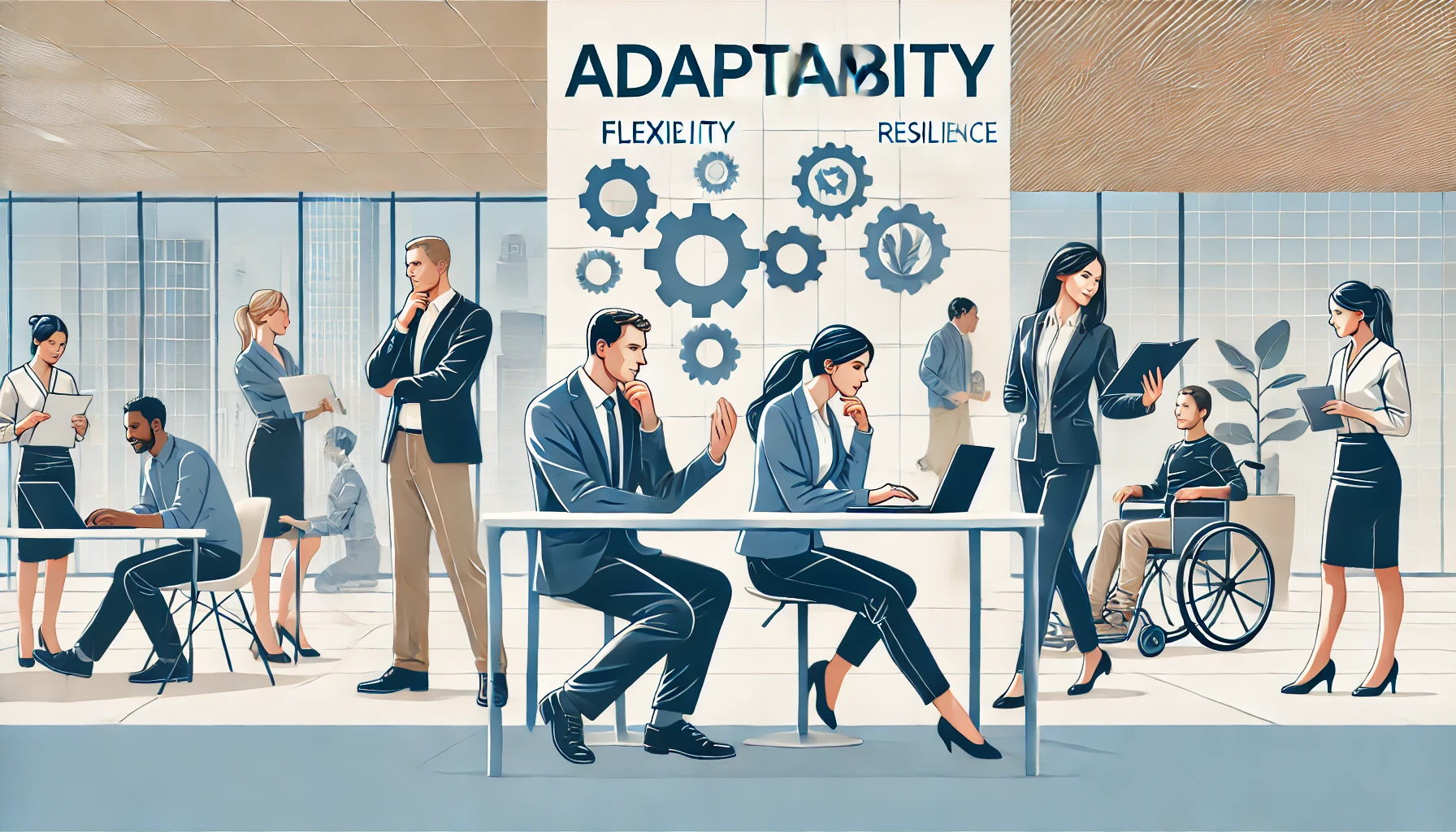In today’s fast-changing job market, adaptability is a must-have skill. New technologies, industry shifts, and workplace challenges require professionals to adjust quickly, embrace change, and stay relevant.
Being adaptable means handling uncertainty with confidence, learning new skills, and thriving in different work environments. In this article, we’ll explore six key strategies to improve adaptability and boost career success.
1. Develop a Growth Mindset
Adaptable professionals see change as an opportunity, not a threat.
How to develop a growth mindset:
✔ Embrace challenges as learning experiences.
✔ Replace “I can’t do this” with “I can learn how to do this”.
✔ Stay open to new perspectives and feedback.
✔ Focus on solutions instead of dwelling on problems.
💡 Example: Instead of fearing job automation, see it as a chance to upskill and stay ahead.
2. Learn New Skills Continuously
The more skills you have, the easier it is to adapt to changes in your field.
How to stay ahead with learning:
✔ Take online courses on emerging industry trends.
✔ Read books, listen to podcasts, or attend webinars.
✔ Seek mentorship from professionals who have navigated change.
✔ Engage in cross-functional projects to expand your skill set.
💡 Tip: Commit to learning one new skill every 3-6 months to stay competitive.
3. Stay Open to Feedback and Self-Improvement
Feedback helps you adjust and improve in response to workplace changes.
How to use feedback effectively:
✔ View feedback as a tool for growth, not criticism.
✔ Actively seek input from colleagues and mentors.
✔ Apply constructive feedback to improve performance.
✔ Regularly assess your strengths and areas for development.
💡 Example: If a manager suggests improving communication skills, take a course or practice public speaking.
4. Build Emotional Resilience
Adaptability requires staying strong under pressure and bouncing back from setbacks.
Ways to strengthen resilience:
✔ Manage stress through exercise, mindfulness, or relaxation techniques.
✔ Stay positive and focus on what you can control.
✔ Learn from failures instead of fearing them.
✔ Maintain a support network of mentors and colleagues.
💡 Tip: Resilient professionals adapt to change faster and turn setbacks into learning moments.
5. Improve Problem-Solving and Critical Thinking
Quick thinking and problem-solving skills help you navigate uncertainty.
How to enhance problem-solving skills:
✔ Break challenges into smaller, manageable steps.
✔ Consider multiple solutions before making a decision.
✔ Stay calm and approach problems with a logical mindset.
✔ Learn from past challenges to improve future decision-making.
💡 Example: If a major project deadline changes, quickly adjust priorities and find efficient solutions.
6. Embrace Workplace Flexibility
Being adaptable means adjusting to new work environments, schedules, and team dynamics.
How to stay flexible at work:
✔ Be open to new job roles, responsibilities, or leadership changes.
✔ Adapt to remote, hybrid, or in-office work models.
✔ Collaborate with diverse teams across different time zones.
✔ Stay proactive—anticipate and prepare for industry shifts.
💡 Tip: Companies value professionals who can pivot and thrive in any situation.
Final Thoughts
Adaptability is a career superpower. By developing a growth mindset, learning continuously, embracing feedback, building resilience, sharpening problem-solving skills, and staying flexible, you’ll thrive in any workplace and future-proof your career.
Start building your adaptability skills today and become unstoppable in your professional journey! 🚀

